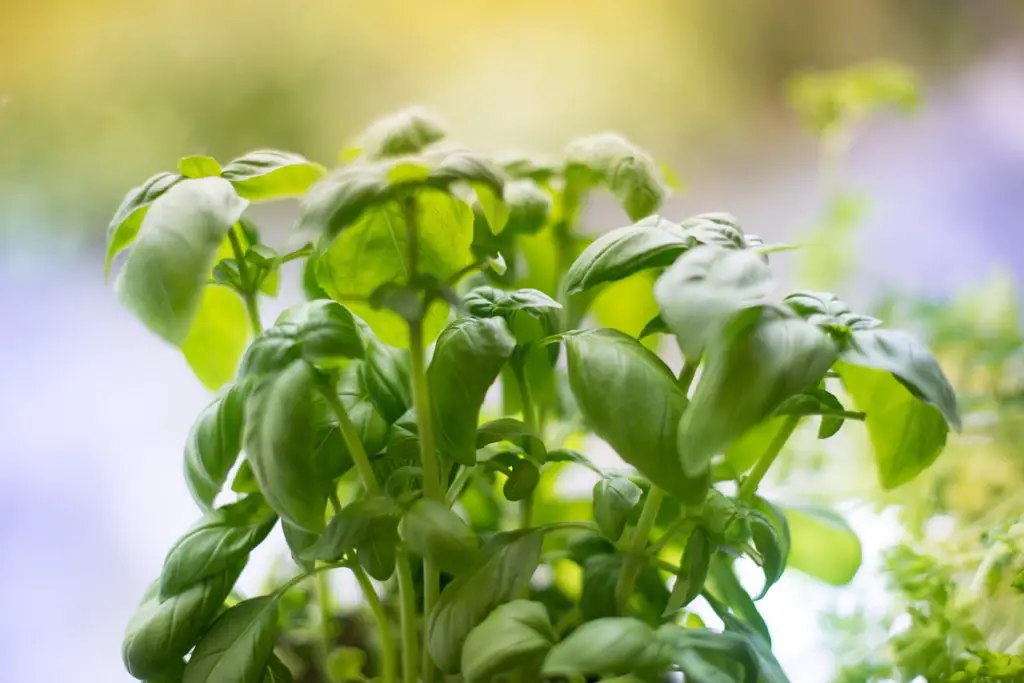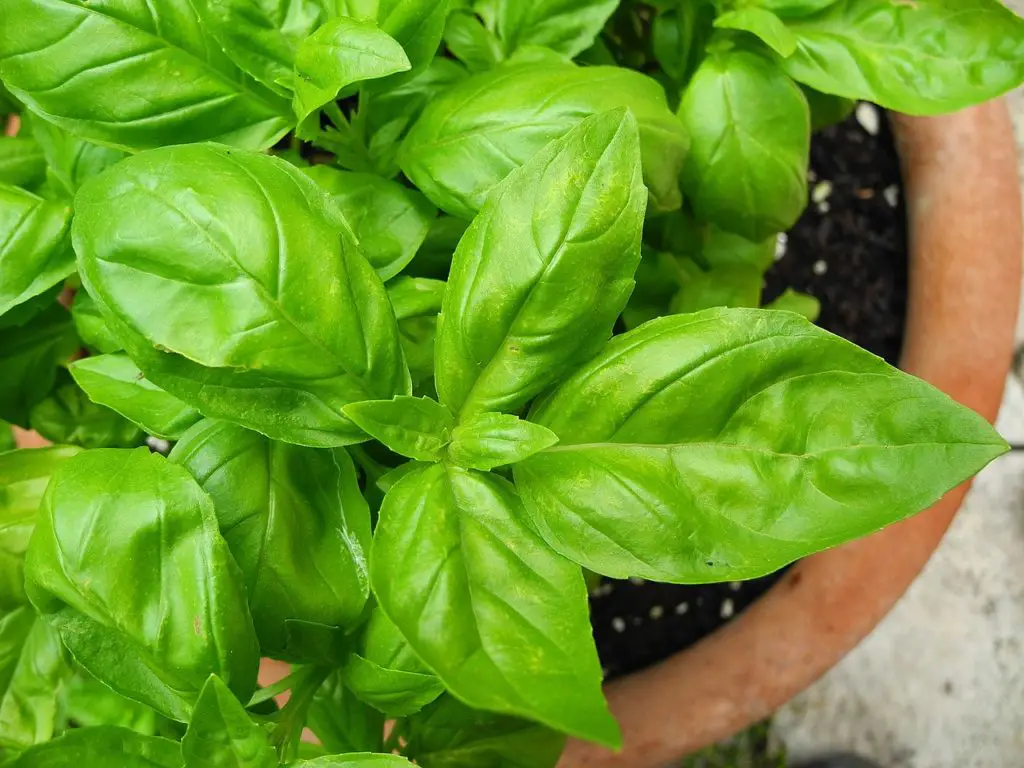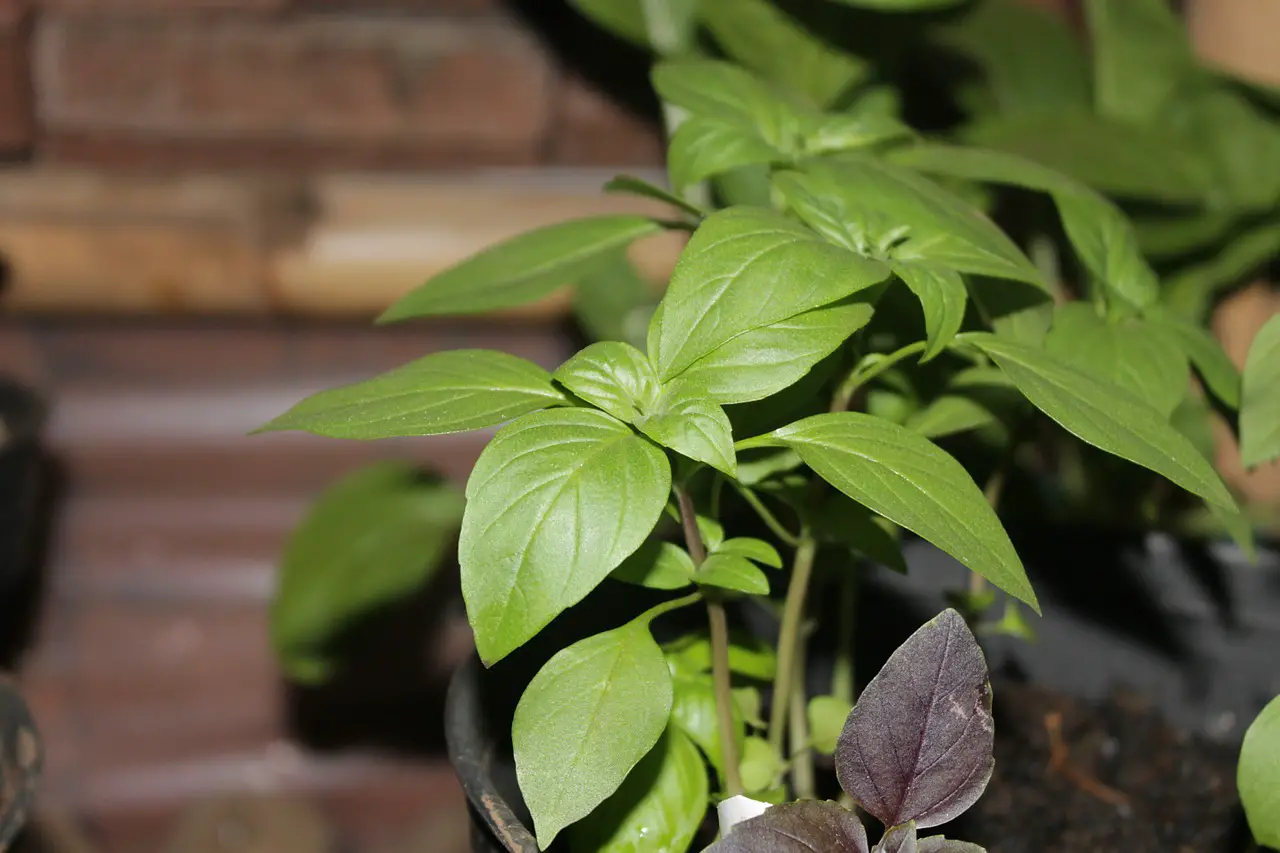
Thank you for reading this guide on the reasons behind the unpleasant odor of your basil plant. A primary factor affecting the scent of your basil is external influences, particularly the composition of the surrounding air and the plant’s growing environment. Extensive studies have revealed that basil’s propensity for cross-pollination can lead to the creation of new varieties, each with unique aromatic compounds. In this guide, we’ll delve deeper into these subjects to help you grasp the nuances of why your basil smells the way it does.
My Basil Plant Smells Bad
As mentioned at the outset of this article, the primary cause of your basil’s unique scent is likely the compounds present in the air, which influence the plant’s aroma. Additionally, if your basil has cross-pollinated, it may acquire distinct smells, such as cinnamon or licorice.
With more than 150 basil varieties worldwide, the diversity allows for the cultivation of plants with specific aromas and flavors, a result of deliberate cross-breeding efforts. This process is akin to dog breeding, where crossing different breeds can bring out desired traits not found in one breed alone, aiming for a particular outcome.
How Do You Know If Basil Has Gone Bad
Determining if basil has gone bad is crucial to ensure you’re using fresh herbs in your cooking. Fresh basil should have vibrant green leaves; any discoloration, such as yellow or black spots, indicates the basil is past its prime. Another telltale sign is the texture of the leaves. Fresh basil leaves are firm and plump, but if they feel slimy or wilted, the basil is no longer fresh. The scent of basil is also a significant indicator. Fresh basil emits a strong, sweet aroma. If your basil smells musty or has lost its distinctive scent, it’s a sign that it’s gone bad. Additionally, if you see mold growth on the stems or leaves, it’s definitely time to discard the basil. Keeping these factors in mind will help you recognize when your basil is no longer suitable for culinary use, ensuring your dishes retain the desired freshness and flavor.
Why Does My Basil Smell Like Licorice
The unique licorice scent in your basil is likely due to its genetic makeup, which influences its aromatic profile. Basil varieties can produce a range of scents, including licorice, due to the specific combination of essential oils and compounds within the plant. This variation in aroma is a result of natural genetic diversity or deliberate breeding practices aimed at enhancing certain desirable traits, such as specific flavors or scents. So, if your basil smells like licorice, it’s a natural characteristic of that particular variety.
What Does Basil Smell Like
Basil’s aroma is one of its most distinctive features, often described as fresh, sweet, and slightly peppery with a hint of mint. This complex fragrance is attributed to the essential oils present in the leaves, particularly linalool, which contributes to its sweet, floral scent, and eugenol, giving it a spicy, clove-like undertone. The exact scent profile can vary among different basil varieties, ranging from the classic sweet basil’s refreshing fragrance to unique variations like lemon basil, which carries a citrusy note, or cinnamon basil, with its warm, spicy aroma. This aromatic diversity makes basil a versatile herb in culinary applications, enhancing dishes with its vibrant scent and flavor.
Basil Flavour Profile
Basil’s flavor profile is rich and multifaceted, characterized by its sweet yet savory taste with subtle peppery and minty notes. This herb’s essence is highlighted by a warm, slightly anise-like quality, making it a staple in many cuisines. The flavor of basil can vary among its varieties; for example, sweet basil offers a classic, peppery taste, while Thai basil presents a spicier, anise-tinged palate, and lemon basil introduces a citrusy twist. These variations allow basil to complement a wide range of dishes, from Italian pestos to Thai curries.

Why Does My Basil Plant Smell Weird
To encapsulate our discussion, the aroma of basil can deviate from the norm due to various compounds present in its growing environment. A notable instance is the unpleasant scent reminiscent of cat urine, primarily attributed to mercaptan. This particular compound engages in a chemical reaction with the enzymes within the basil plant, culminating in the distinctive odor. Such an issue is rooted in the plant’s genetics, implying that once this odor manifests, the only recourse is to cultivate new basil plants for the ensuing season. It’s important to understand that the external factors and the plant’s inherent traits contribute to these unique olfactory experiences, necessitating a fresh start with new seeds to avoid recurring issues. This approach ensures that your garden remains fragrant with the intended aromatic qualities of basil, free from any unwelcome surprises.
Why Does My Basil Smell Bitter
If your basil emits a bitter smell, it may be due to stress factors such as insufficient water, excessive heat, or poor soil conditions affecting its essential oil composition. Over-maturity can also cause basil to develop a bitter scent, as older plants produce more volatile compounds, altering their aromatic profile. Ensuring your basil receives adequate care, including proper watering, sunlight, and nutrient-rich soil, can help maintain its characteristic sweet and aromatic scent, preventing the development of undesirable bitter notes.

